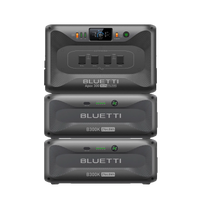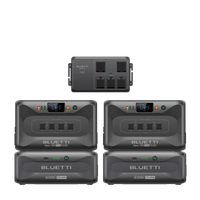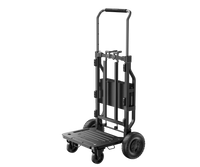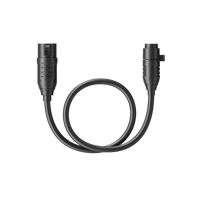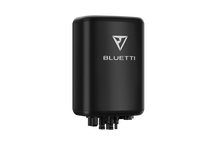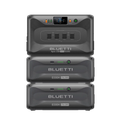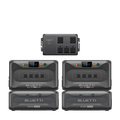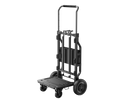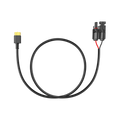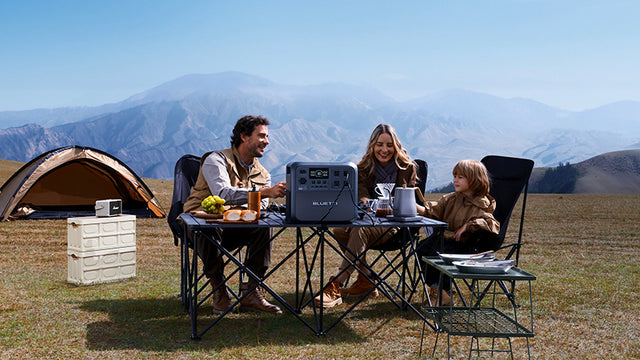Your cart is empty
Shop our productsSolar energy offers energy independence, reduces electricity costs, and is sustainable for the environment. So, what keeps you from going green? For most people, it’s the upfront costs that create the trouble. But don’t worry, solar financing is readily available now. It’s more like buying a car. You can take solar loans, lease solar, or opt for various other options.
We’ll explore solar financing in detail with expert tips about solar installers. It’s not always about getting the money; the way you utilize it makes the difference. There are numerous solar companies and solar installers; we’ll help you shortlist the best ones. Let’s dive deep into the world of solar financing and solar installers. Don’t miss out on the key takeaway in the end!
Solar Financing Options

Shortage of funds can no longer stop you from reaping the benefits of solar energy. There are a range of financing options available. The one thing you must prepare for is to determine your solar system requirements per your household power consumption. Let’s explore the available options:
Savings
Before considering other options, you should first try to spare your cash to buy the system. The costs of the system substantially increase if you go for loans or leases. The major drawback is a late return on investment, and since solar systems are depreciating assets, the benefits subside with time. If your income allows you to save enough funds to finance a solar system, it’ll be the best option.
For many people it may not be the case, the upfront costs for solar systems are substantial. Paying all at once can be very difficult when your income is low. You can go for other financing options. It’s not just that you’ll reduce energy costs with solar, the lease or loan will also provide tax benefits. The income with liabilities is not taxed according to federal laws.
Solar Loans
Solar loans are a thing now, they’re similar to car loans or any other loan you would take to buy expensive appliances. There are multiple solar companies and private dealers who offer solar loans. You take the loan to pay for upfront costs of the solar system and make periodic payments with interest to clear the loan. The terms are variable and negotiable, it depends on what deal you agree on.
There are two common solar loan types; secured loans and unsecured loans. When taking a secured loan, you’ll keep your house as collateral. However, with unsecured loans the solar system you install becomes the collateral. The secured loans seem risky, but they’re available at lower interest rates. In both cases, the interest payments are a drawback ultimately affecting breakeven.
Cash Out Refinance or HELOC
You can use Cash-Out Refinance by refinancing your mortgage to buy a solar system. It enables you to use the equity in your home to finance solar installations. The process is simple and straightforward. Check your equity and required upfront, reach out to a lender, prepare paperwork, and get the amount. The interest rate would be comparatively lower than a solar loan, but the collateral will be your house.
Similarly, Home Equity Line of Credit (HELOC) could also be used for solar financing. You can get a line of credit against the equity in your home. It’s like a credit card with collateral as your home. You may decide the repayment terms, the interest charges will be lower compared to other financing options. Many banks, unions, and private lenders offer HELOC, once you finalize the agreement fund will be disbursed.
Solar Leases or Power Purchase Agreements (PPA)
Have you ever leased out a car? Solar leases work the same way. You will get a solar system installed by a company and pay them on a monthly basis. The only catch is that you don’t own the system. The power purchase agreements (PPAs) are more or less the same. A solar company will install a solar system in your house, they’ll maintain it for you, and charge for the power you consume. The rates will be much lesser than you pay to a utility company.
Choose a Solar Company that Cares for You

Since demand for solar systems is rising, the market is saturated with solar companies. A solar company that provides professional installations is not necessarily the best. The company should care for you as a customer. Here are the factors you should consider:
Certifications and Compliance
The solar provider must be compliant with federal laws. There are multiple government bodies that permit these companies to install solar systems. You must check their certifications and verify them. Especially when you’re using external financing to get solar systems, the financial service provider would require these certifications for paperwork.
Policies and Agreements
The company should be very clear about their policies. Any ambiguity in policy can lead to trouble later. Many installers have unclear policies that they use to evade key responsibilities. It allows them to save costs. When signing an agreement, go through the policies and terms & conditions. If you find something unclear, highlight it to the company. Try getting a brief from their employee.
Maintenance & Support
We heavily rely on power, there’s no other way around. The major concern for people shifting to solar is its reliability and continuity of supply. The company you choose should offer seamless maintenance and support. The actual care is when company representatives are available at dispatch 24/7. You should evaluate your options on this key consideration.
Customer Reviews
You can judge whether a company cares for its customers through customer reviews. It’s like a litmus paper test. Ideally, you should ask for reviews from customers that you personally know. Their satisfaction will help you make a clear decision to select the solar company or not. Saving costs using solar is only possible with a good solar company.
Discover the Best Solar Products Available on the Market
Never rely too much on your solar installer. You can explore the market to discover the best available products. Having the market knowledge will keep you in a good position to discuss options with your installer.
BLUETTI is leading the market with its hi-tech solar technology. The BLUETTI products are reliable with advanced control and easy connectivity. They synchronize with existing electrical installations seamlessly. Some of the products offer portability for outdoors and on the go usage. Let’s browse BLUETTI solar systems for home use.
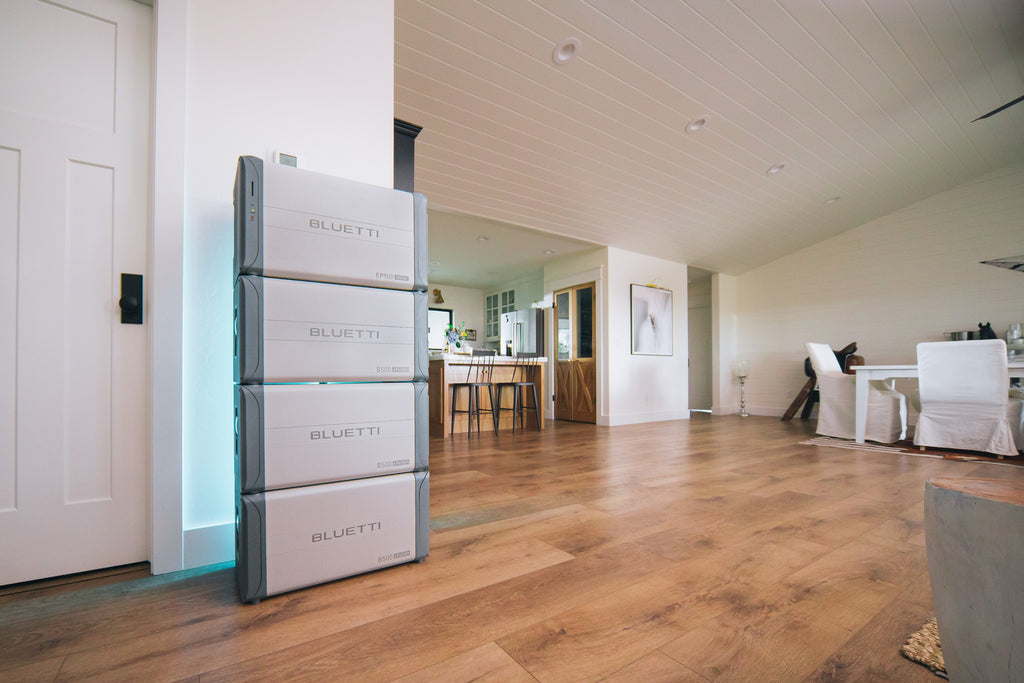
The BLUETTI EP900 + B500 Home Battery Backup is the ultimate power solution with expandable capacity of 9,920Wh to 19,840Wh. It comes with advanced LiFePO4 battery technology known for their high durability and longevity. You would not need extra installations to run the system; it has plug-and-play compatibility. The IP65 rating with its sleek design enables outdoor use and minimal space consumption.
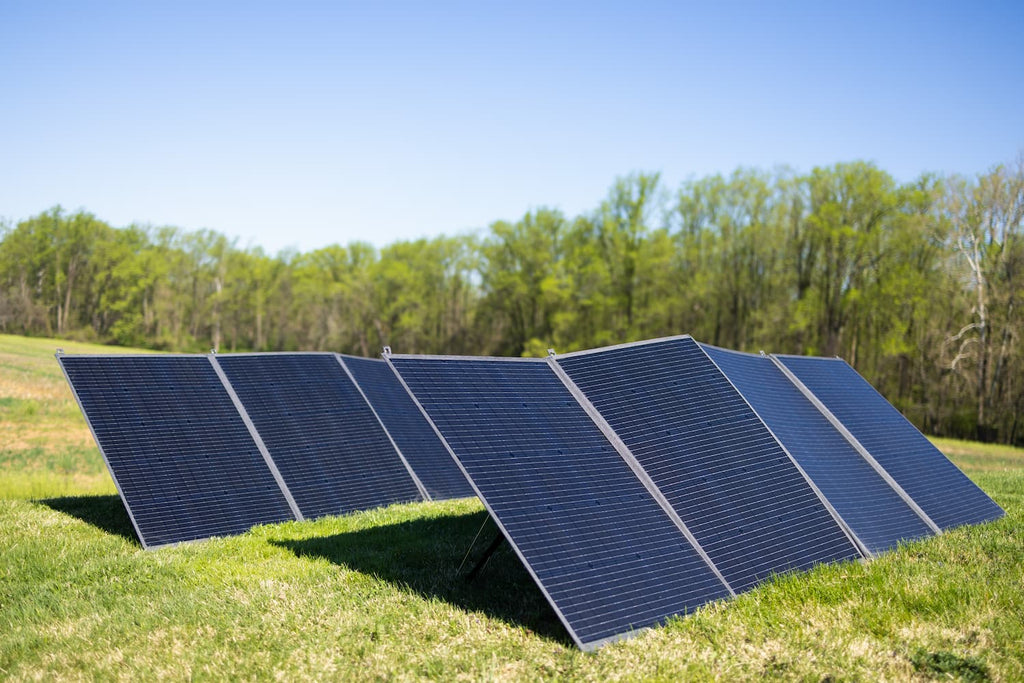
You can power the system with BLUETTI PV420 Solar Panels having ultra durability, high conversion rate, and ETFE coating. The maximum input for solar is 9 kW that can run your entire home 24/7. It provides you with complete energy independence. You can also sell extra power to the grid through net metering. Solar energy not just saves you costs, it can also earn you money.
With BLUETTI EP900 + B500 Home Battery Backup you can experience real energy independence. The system has a modular design, you can increase the output according to your power needs. The best part is BLUETTI's 10-year warranty which testifies to the company’s commitment to durability. If you have any issues, you can reach out to customer support through multiple channels.

BLUETTI AC300 + 4*B300 Home Battery Backup can tackle your energy needs with greater reliability. It has an expandable capacity from 3,072Wh to 12,288Wh. The system is EPS enabled to provide you with uninterruptible supply. BLUETTI has also added an advanced multi-recharge facility to enhance reliability. In case you run out of power, a dual recharge (AC+Solar) facility is available. The hi-tech LiFePO4 Battery packs have high efficiency and last a lifetime.
You can use BLUETTI PV420 Solar Panels having ultra durability, high conversion rate, and ETFE coating. The maximum input for solar is 9 kW that can run your entire home 24/7. It provides you with complete energy independence. You can also sell extra power to the grid through net metering. Solar energy not just saves you costs, it can also earn you money.
Final Thoughts
Hope this blog will help you select a good financing option for the home solar system. Installing a solar system for power needs is a smart move. It provides complete energy independence and slash major spendings on utility bills. You can stay worry-less about power disruptions, cost increases, and lead a comfortable life.
Before signing out, I would suggest determining the breakeven for your solar investment. The financing option should be within a one year plan. It’s because changes in technology are frequent, battery life depletes, and ultimately the system depreciates. To reap good benefits, you must recover the investment faster.
Shop products from this article
Be the First to Know
You May Also Like

What Does a 30% Federal Solar Tax Credit Mean and How to Apply?
Governments around the world are offering programs that encourage homeowners to switch to solar energy. Among the most notable programs is the 30% Federal Solar Tax Credit. It reduces your...

Deadly Flooding Devastates U.S. South and Midwest — What You Need to Know















